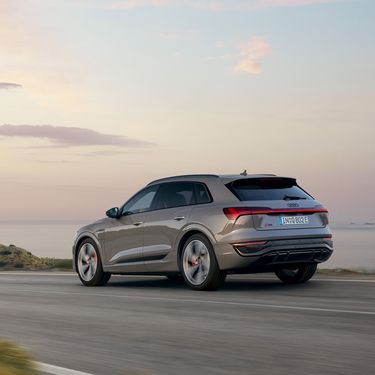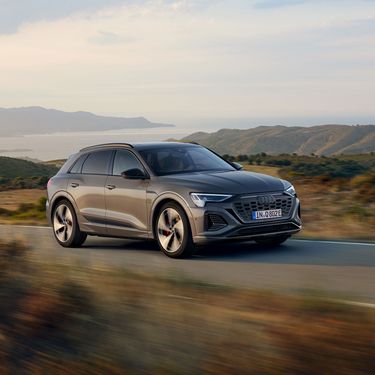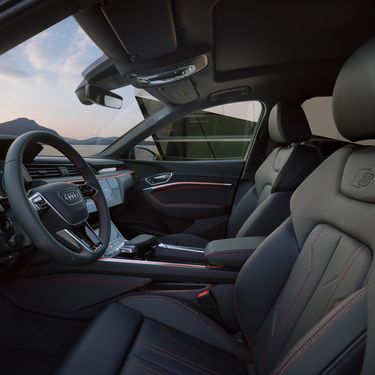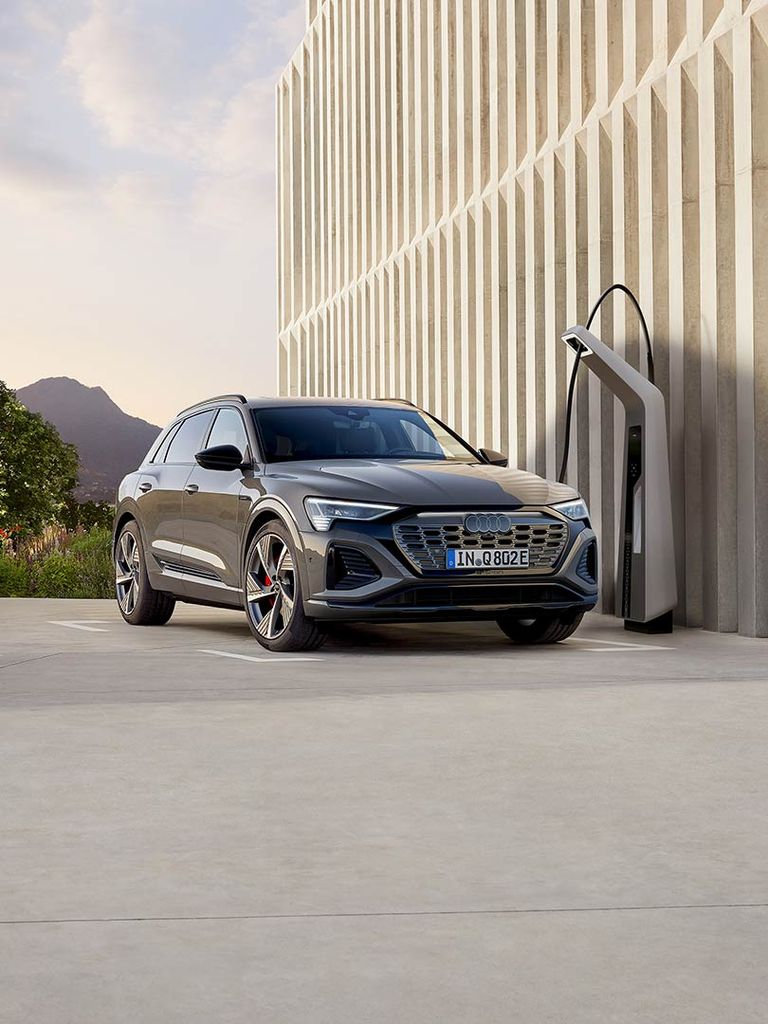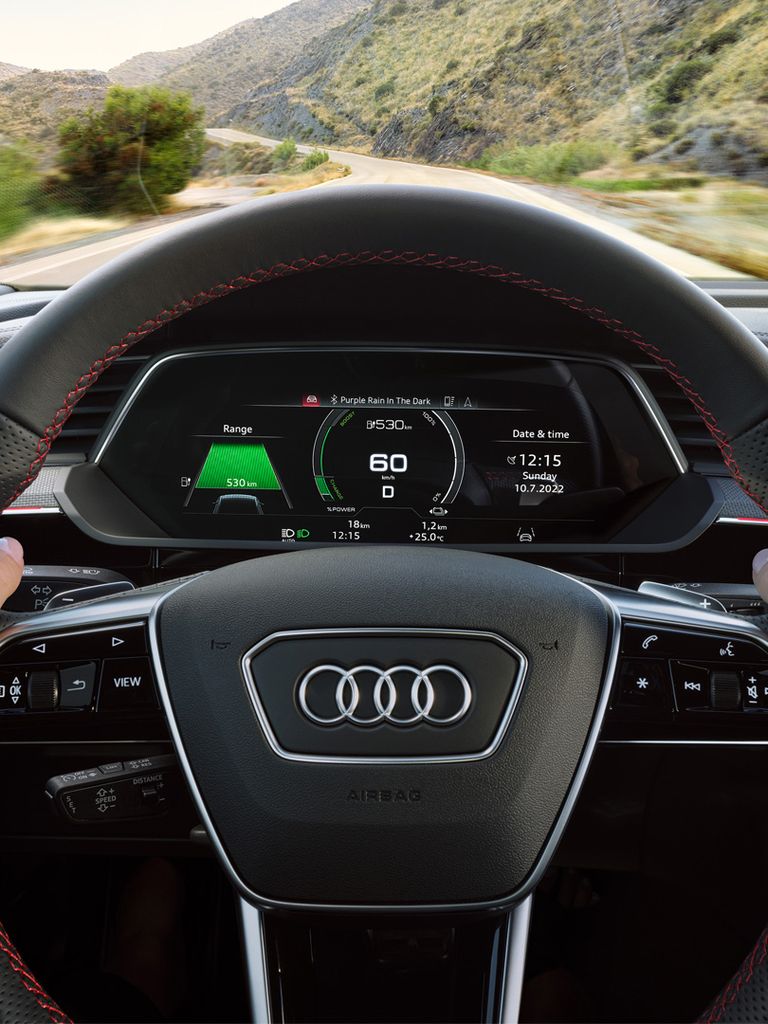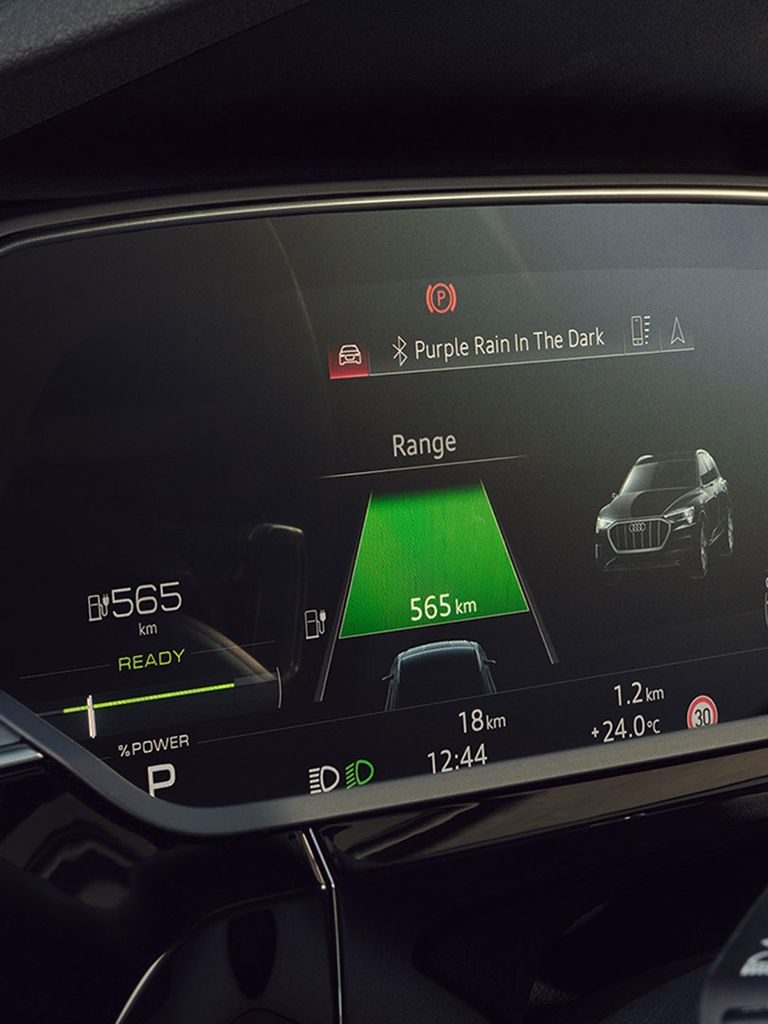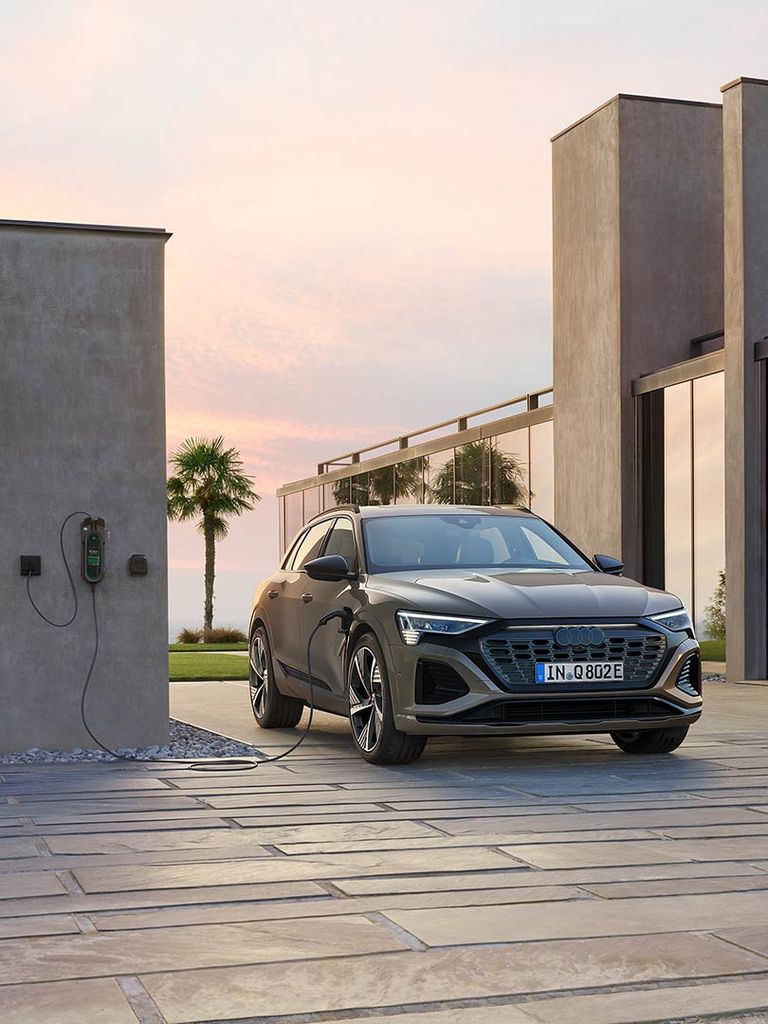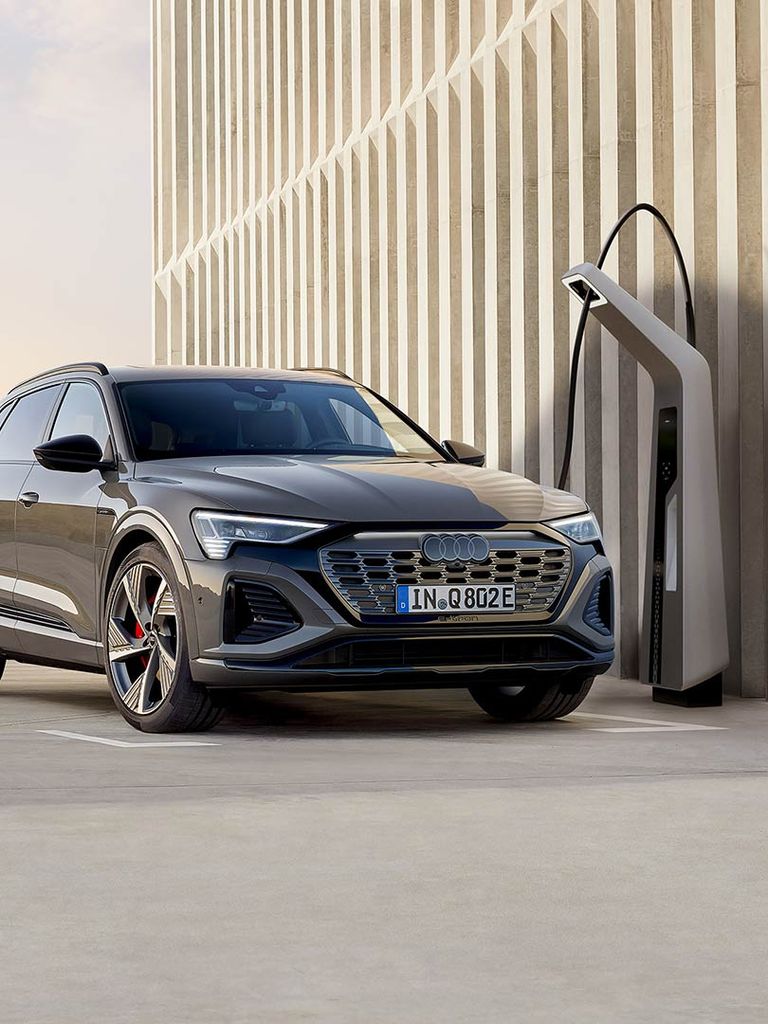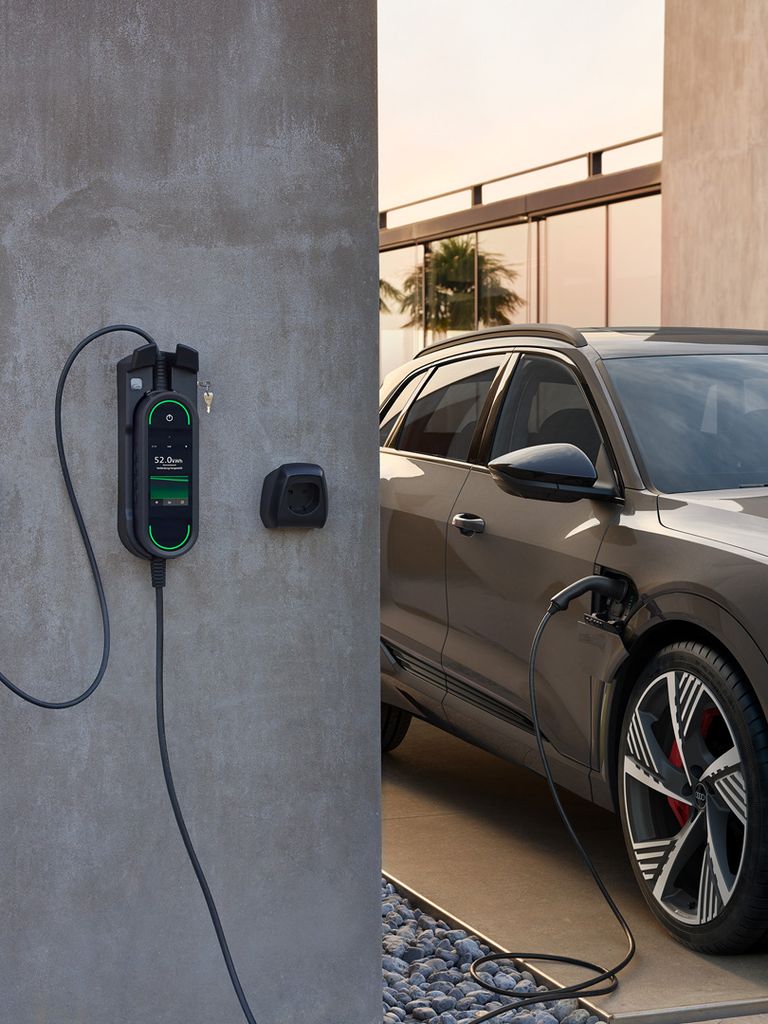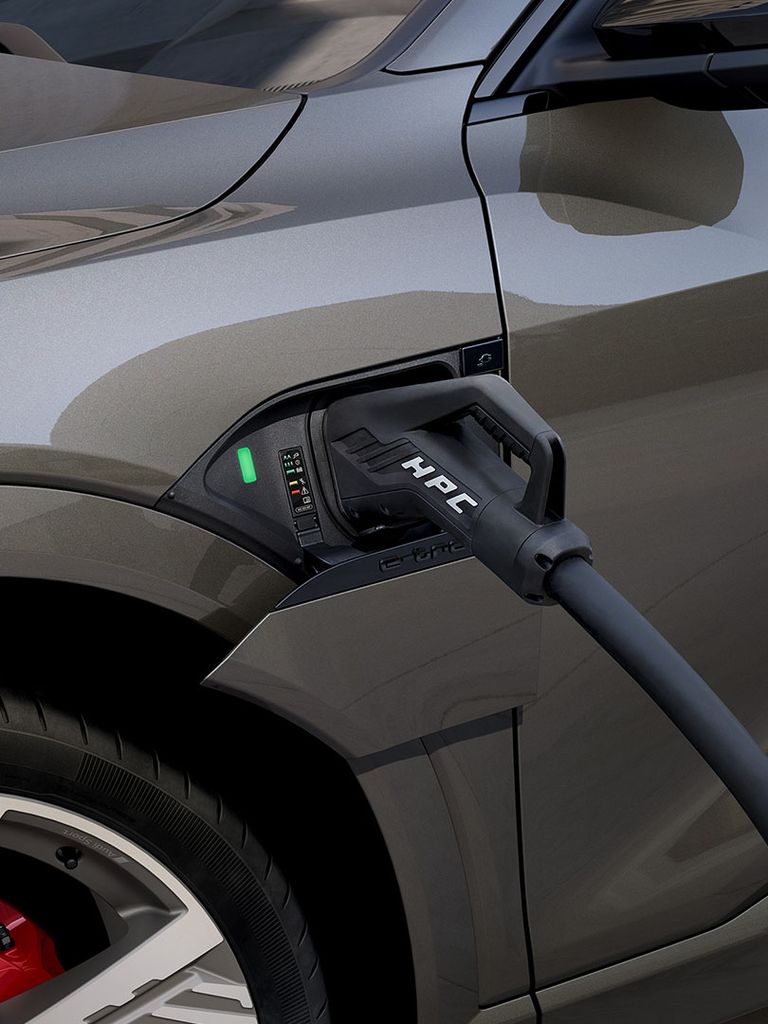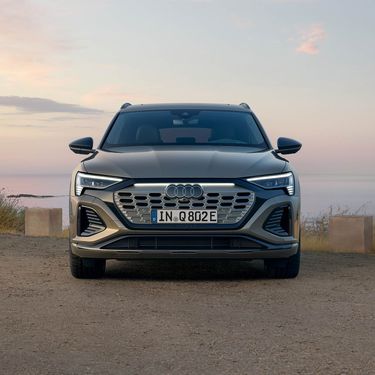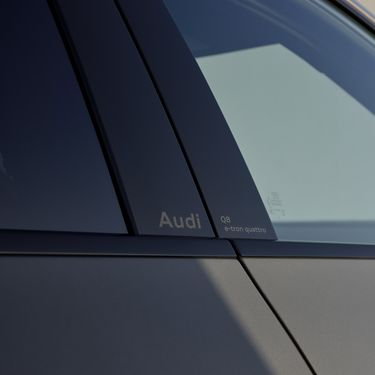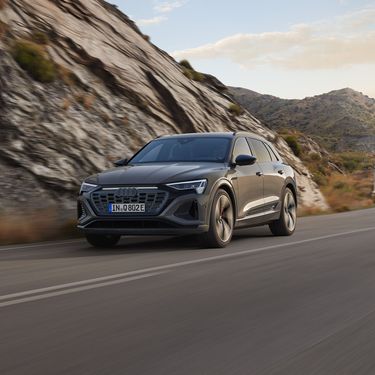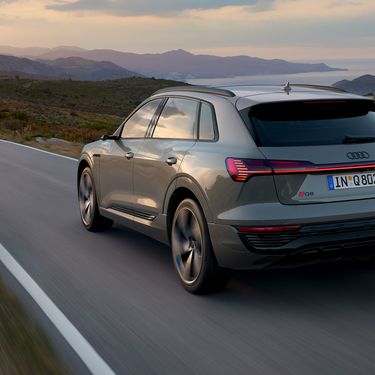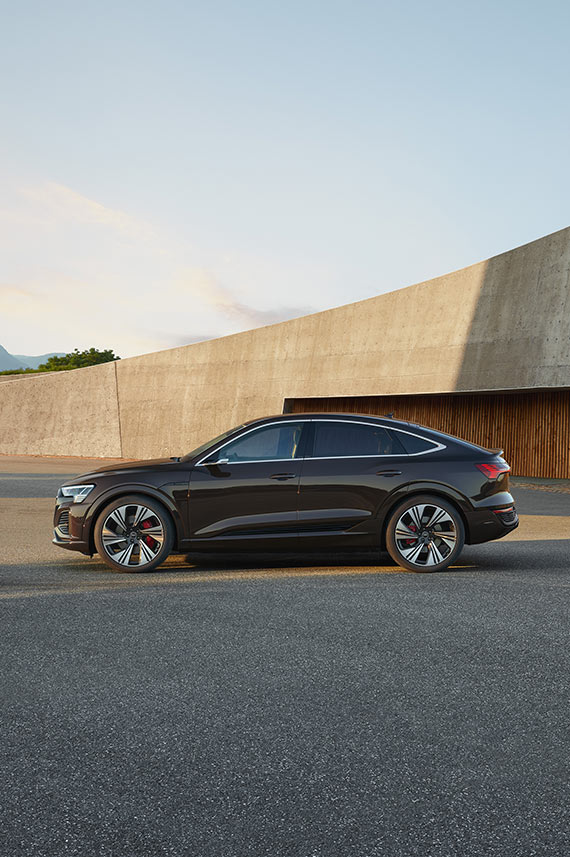Overview > Q8 e-tron > Home
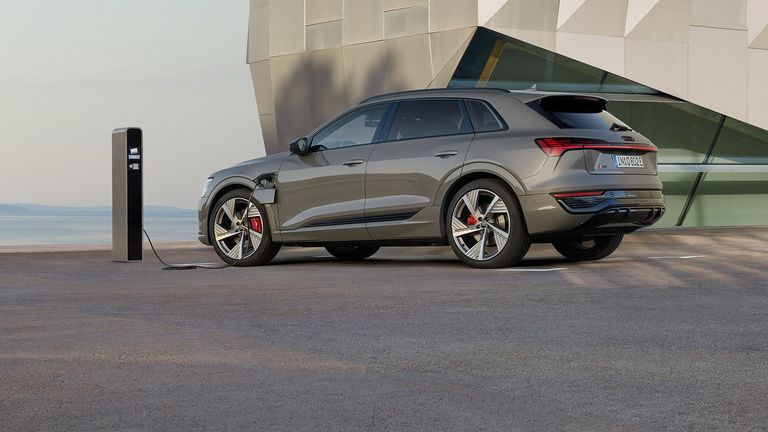
Q8 e-tron
CO2-Emissionen{ft_nemo-fn_eec-global-disclaimer}: 0–0 g/km
Stromverbrauch (kombiniert){ft_nemo-fn_eec-global-disclaimer}: 2.9–2.6 miles/kWh
Charged from 10% to 80% in approx.
31
min,
with maximum DC charging power of up to 170 kW,
Range (WLTP) up to
582
km
Maximum DC charging power up to
170
kW,
Opens up new moments
Discover the new, all-electric Q8 e-tron with a maximum range of up to 582 kilometres – made possible by the high-voltage battery with a capacity of up to 106 kWh (net). When the battery state of charge is low, you can make use of additional range potential, for example by activating the Range mode in the MMI.
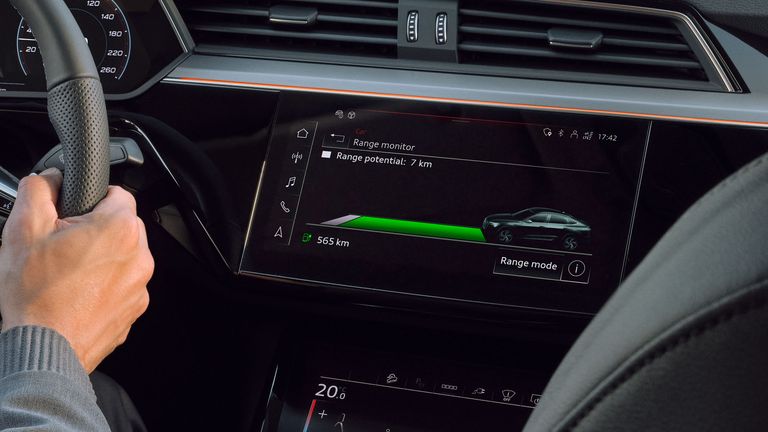
Note: The illustration is of the Audi Q8 Sportback e-tron⁵.
Convenient motoring
There are various charging options for the Audi Q8 e-tron, both at home and on the road. Charging is even easier with Plug & Charge. And thanks to its increased battery capacity.
Numbers Audi Q8 55 e-tron quattro
Electrical maximum power up to
300
kW
Total electrical torque: 664 Nm
Acceleration (0-100 km/h) up to
5.6
s
Battery capacity (net) up to
106
kWh
Power consumption (combined) in kWh/100 km: 24.4–20.6; CO₂ emissions (combined) in g/km: 0. Only consumption and emission values according to WLTP and not according to NEDC are available for the vehicle.
Electrifying at first glance
The Audi Q8 e-tron in a new look and with specific daytime running light signature reflects its progressive technology on the outside, too. The quattro architecture with boldly sculptured shoulder line and the specific daytime running light signature are accentuated in particular by the chronos grey, metallic paint finish.
Sophisticated interior design
Expect more than a generous space concept. Select materials, a first-class finish and advanced digital functions turn every journey in the Audi Q8 e-tron into a premium experience.
New driving experience
Climb in and experience the almost silent acceleration of the electric motors. Benefit from higher traction and stability thanks to fully electric all-wheel drive. Improved driving dynamics thanks to adaptive air suspension and numerous assist systems.
Personal, not normal
Eye-catching effect: the ambient lighting package plus automatically adjusts the colour mood to suit the motif.
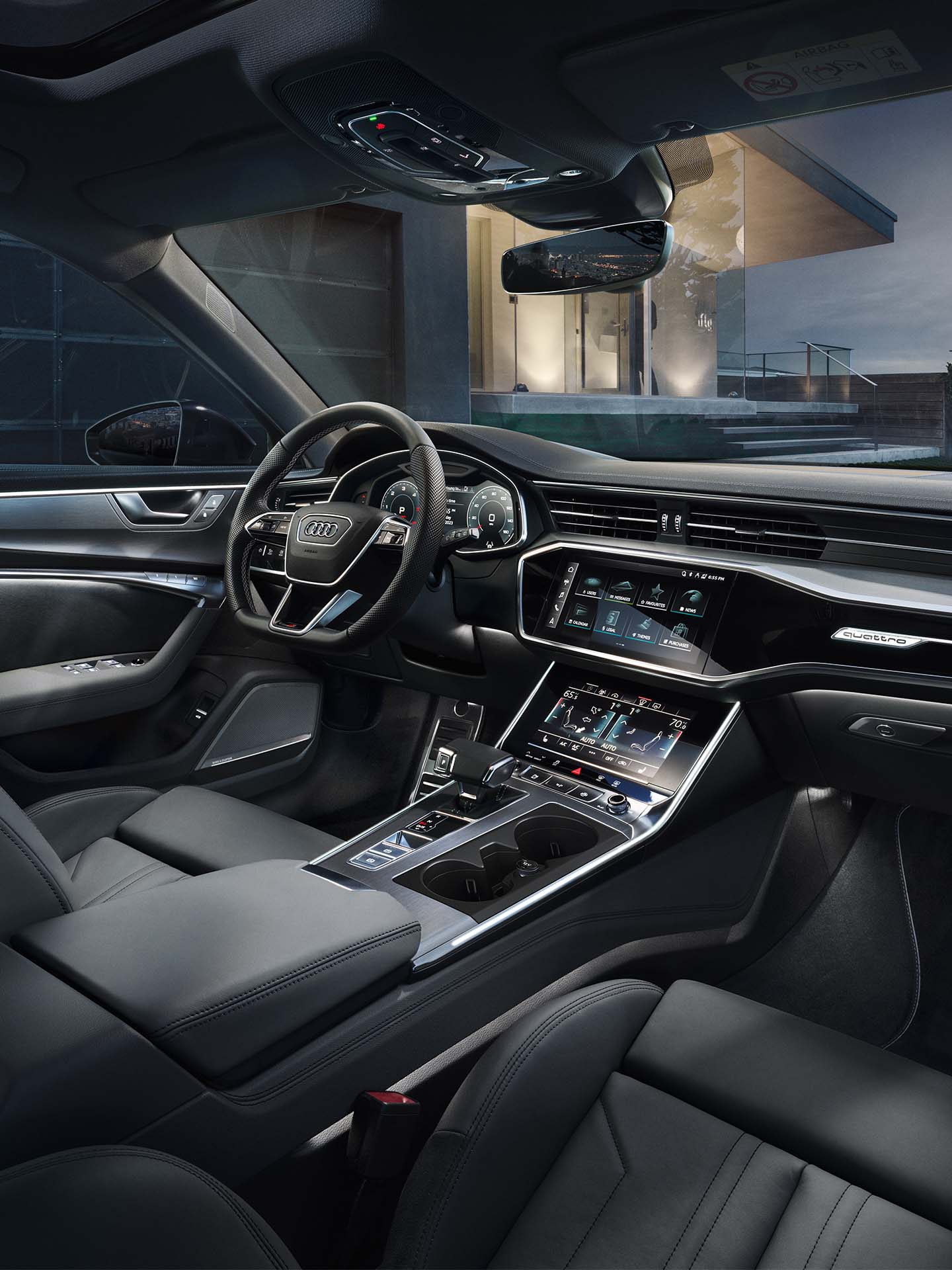
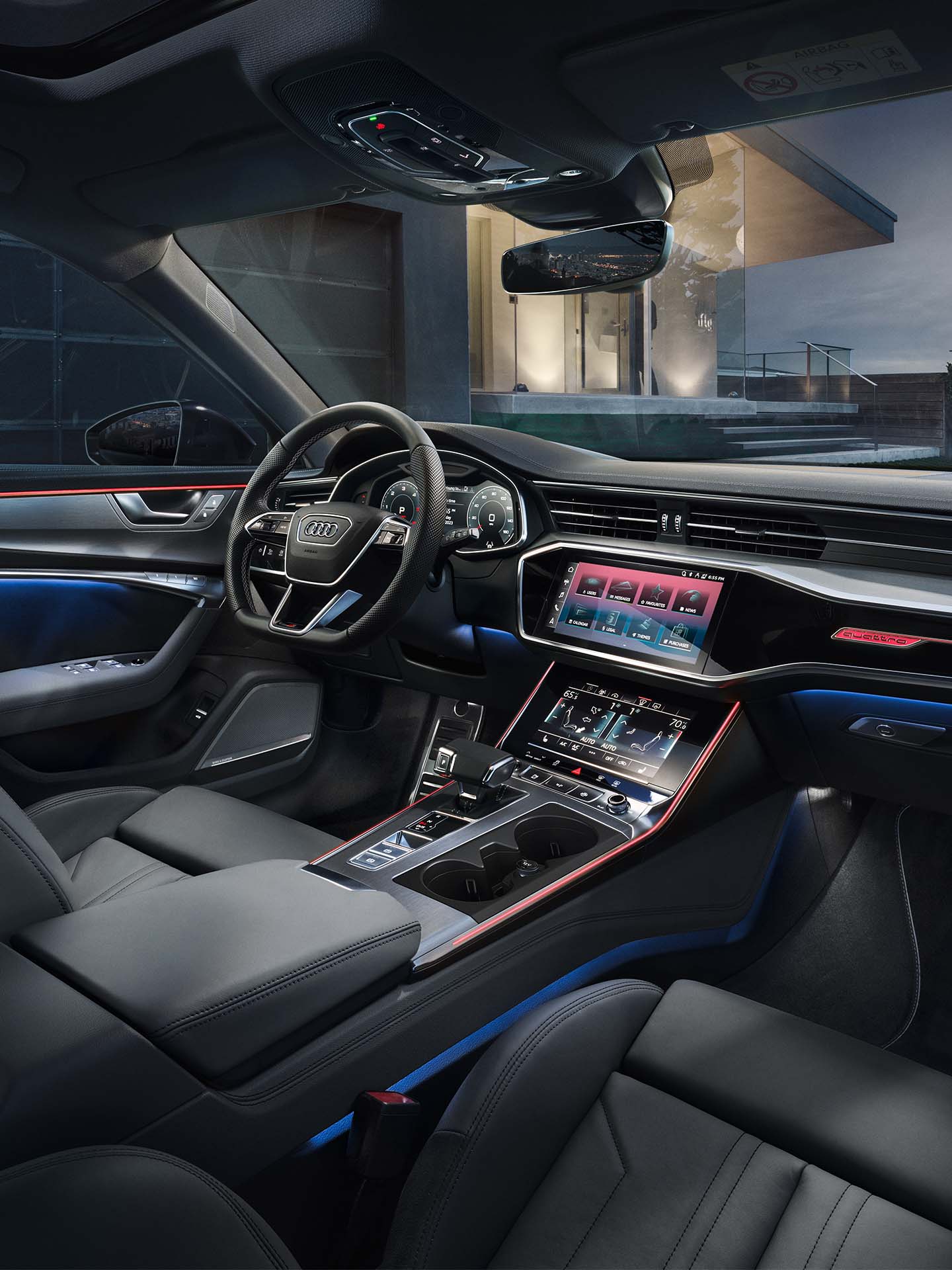
Note: The image is from the Audi A6 Avant. Background in the MMI: © Thomas Hoepker - Magnum Photos
For a sustainable future
Future-oriented solutions at Audi include the conscious use of resources, environmentally friendly production and carbon-neutral vehicle delivery. For example, we use green electricity – including from the photovoltaic systems on the roofs of the production buildings – for the supply of heat and battery manufacturing.
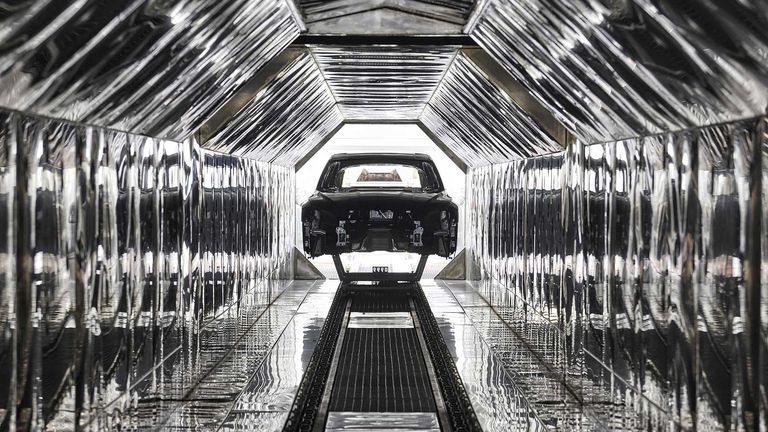
Audi Q8 55 e-tron quattro: Power consumption (combined) in kWh/100 km: 24.4–20.6; CO₂ emissions (combined) in g/km: 0. Only consumption and emission values according to WLTP and not according to NEDC are available for the vehicle.
The charging time of the battery and the maximum DC charging capacity at High Power Charging (HPC) charging stations were calculated according to DIN 70080 and can vary depending on a number of different factors including ambient and battery temperature, the use of other country-specific connectors, the use of the preconditioning function (e.g. remote-controlled air conditioning of the vehicle), the capacity available at the charging station, state of charge and battery ageing. Charging capacity is reduced as the state of charge increases. Charging losses are considered.
The figures specified apply exclusively for the Audi Q8 55 e-tron quattro: Power consumption (combined) in kWh/100 km: 24.4–20.6; CO₂ emissions (combined) in g/km: 0. Only consumption and emission values according to WLTP and not according to NEDC are available for the vehicle.
The Range mode limits the top speed to about 90 km/h, for example, adjusts the settings for comfort functions such as the automatic air conditioning and deactivates the seat heating.
The charging systems mentioned are options available for an extra charge. The e-tron charging system compact has a charging capacity of up to 11 kW. The e-tron charging system compact has a charging capacity of up to 22 kW (only in conjunction with on-board charger up to 22 kW, available optionally for an extra charge). Charging capacity depends on the type of mains connector used, the country’s voltage and the number of available phases of the power network as well as the customer’s own domestic installation. It may therefore be lower in some cases. The mains connecting cable with industrial connector and the operating unit of the charging system are matched to each other and enable a certain charging capacity. Although it is technically feasible to switch the mains connecting cable to a different industrial connector later on, this could result in a lower charging capacity.
Available for an extra charge from Volkswagen Group Charging GmbH (Elli).
Please note: The two AC charging ports cannot be used simultaneously. The simultaneous use of both AC charging ports is prevented by a locking concept for the charging flaps.
Charging with 22 kW at home requires the e-tron charging system compact optionally available for an extra charge or an alternative home charging solution that supports 22 kW AC. The standard e-tron charging system compact is limited to 11 kW.
Due to physical constraints, the maximum output for the acceleration figures given can be repeated multiple but not an unlimited number of times in a row.
Please note: The systems work only within system limits and provide assistance while driving. However, the driver remains responsible for driving the vehicle and is required to be attentive at all times.
CO₂ emissions that cannot currently be prevented using technical means are offset with carbon credits.
The equipment mentioned is an option available for an extra charge.

